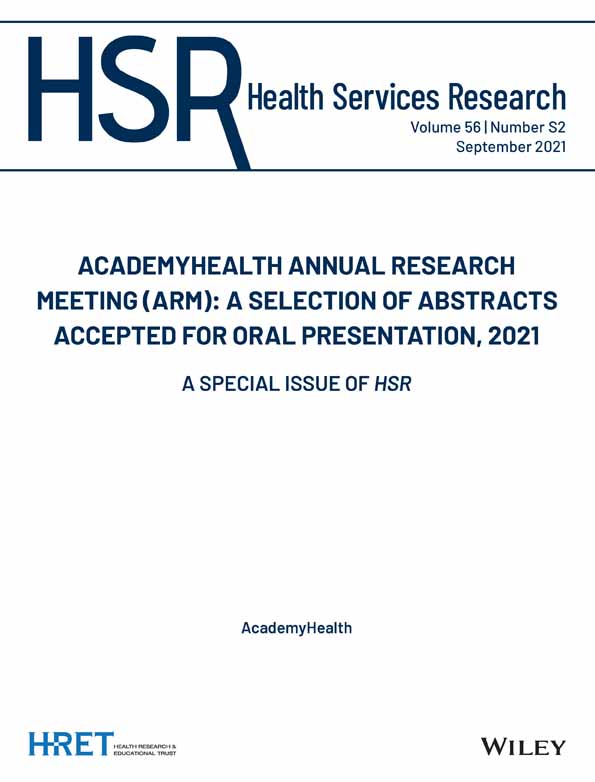Prevalence of Social Risk and Social Need in a Medicaid Accountable Care Organization
Abstract
Research Objective
Adverse social determinants of health (SDoH) are associated with higher chronic disease prevalence and healthcare utilization. In 2018, Mass General Brigham implemented SDoH screening in its Medicaid Accountable Care Organization (ACO) to measure social risk (specific adverse social conditions associated with poor health) and social need (request for assistance). The overlap between patient-identified social risk and social need is not well understood. The goals of this study were: (1) to compare prevalence of social risk and social need in primary care and (2) to identify patient factors associated with differential prevalence.
Study Design
We conducted a cross-sectional study of patient responses to a SDoH questionnaire from February 2019 to February 2020. The questionnaire assessed social risk in eight domains (food, housing, medication, transportation, utilities, family care, employment, education) as well as social need by a request for more information in these domains. The questionnaire was available in English or Spanish through a patient portal or on a tablet before routine primary care visits. We applied descriptive statistics to the prevalence of social risk and social need, stratified patient responses by language and race/ethnicity, and compared patient groups using a chi-squared test.
Population Studied
Adult and pediatric primary care patients in151 practices in the Mass General Brigham Medicaid ACO. Mass General Brigham is a large health system across Massachusetts including both academic medical centers and community physician organizations.
Principal Findings
The study population included 27,500 individuals who completed 30,820 screenings, including 15,219 (55.3%) caregivers of pediatric patients. Of individuals screened, 14.9% were Spanish-speaking, 32.1% identified as Hispanic or Latino, and 10.2% identified as non-Hispanic Black or African American. Of completed screenings, 13,736 (44.6%) were positive for 31 social risk and 2954 (9.6%) for33 risks; 5879 (19.1%) were positive for social need and 4863 (35.4%) for both social risk and social need. Notably, 1016 (6.0%) screenings were positive for a social need but negative for social risk. Patients who were Spanish-speaking, Hispanic, or non-Hispanic Black reported significantly more social risk and social need, and reported social need while screening negative for social risk significantly more than English-speaking (9.2% v. 5.4%, p < 0.001) and White patients (8.2% and 8.6% v. 3.8%, p < 0.001) respectively, both overall and in sub-domains of housing, transportation, utilities, employment, and education.
Conclusions
Almost half of Medicaid ACO patients screened for SDoH reported social risk or social need, with incomplete overlap between these groups. Individuals who identified as Hispanic or non-Hispanic Black, or who were Spanish-speaking, had more social risk, social need, and more often reported social needs without reporting risk. Screening for social risk and social need identify different patient populations and screening for both identifies more individuals with adverse SDoH, particularly among historically disadvantaged demographic groups.
Implications for Policy or Practice
Screening for social risk alone is not sufficient to identify all patients with adverse SDoH. We encourage health systems and Medicaid programs to consider screening tools for social risk and patient-centered questions for social need. Identifying both populations increases the opportunity for intervention and mitigation of negative health effects.




